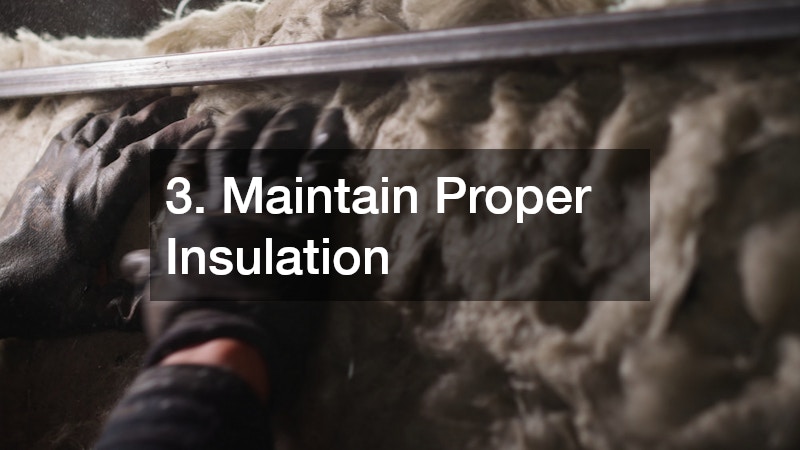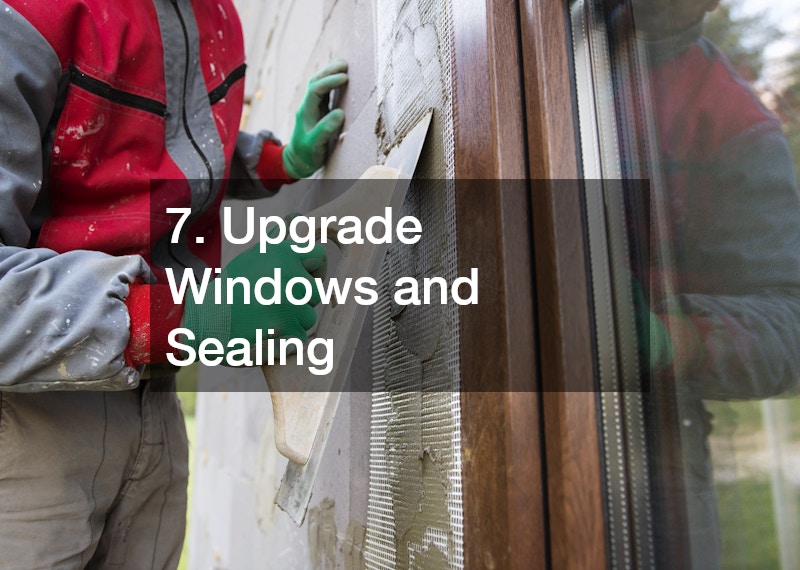Old AC units can be reliable workhorses, but like any mechanical system, they require proper care to function efficiently and avoid costly repairs. Without attention, even a well-built air conditioner can struggle, overwork, or fail prematurely. Fortunately, with a few smart habits at home, you can protect your old AC unit, maintain comfort, and extend its lifespan.
In this guide, we’ll explore ten practical habits homeowners can adopt to keep their aging air conditioning systems running smoothly. Along the way, we’ll touch on helpful maintenance practices, home upgrades, and professional services that support the longevity of your old AC units.
1. Change Your HVAC Filter Regularly

One of the simplest yet most impactful habits for protecting old AC units is maintaining a clean HVAC filter. A dirty or clogged filter restricts airflow, forcing your system to work harder, which increases wear and energy use.
Depending on your filter type and home conditions, it’s recommended to check and replace your filter every 1–3 months. Homes with pets, smokers, or heavy dust accumulation may need more frequent changes. Regular filter maintenance prevents debris from entering the system, protects internal components, and improves indoor air quality.
Investing in high-quality filters can also help older systems perform better. Some filters even capture smaller particles, which can reduce dust accumulation in air ducts and minimize strain on the AC unit. Pair this habit with routine HVAC maintenance services to ensure your system operates efficiently year-round. Additionally, keeping a log of filter changes helps track maintenance and ensures no month is skipped, which is particularly important for aging systems.
2. Keep Your Air Ducts Clean
Air ducts play a vital role in circulating conditioned air throughout your home. Over time, dust, debris, and mold can accumulate in your ducts, restricting airflow and forcing your old AC unit to work harder.
Scheduling periodic visits from a professional air duct cleaner can significantly improve airflow and indoor air quality. Clean ducts help your AC system maintain consistent cooling and reduce the risk of uneven temperatures or hotspots.
Additionally, inspecting ductwork for leaks or gaps and sealing them can prevent conditioned air from escaping. This practice reduces energy waste and protects the system from unnecessary strain, which is particularly important for older units that may already have reduced efficiency. Clean ducts also reduce allergens and dust in your home, improving comfort for everyone, especially those with respiratory sensitivities.
3. Maintain Proper Insulation

Proper insulation keeps your home’s temperature stable and prevents your AC unit from overworking. Areas like attics, walls, and crawl spaces can lose conditioned air if not properly insulated.
Hiring professional insulation services ensures your home is sealed and energy-efficient. Quality insulation reduces heat gain in the summer and heat loss in the winter, allowing your old AC unit to maintain comfort without running constantly. Even small improvements, like weather-stripping doors and windows or sealing gaps around vents, can make a noticeable difference in efficiency.
Investing in insulation also enhances your home’s overall energy efficiency, lowering utility bills while reducing strain on your AC system. A well-insulated home ensures that every cubic foot of cooled air is utilized effectively, which is especially important for older units that might struggle with temperature swings.
4. Schedule Regular HVAC Maintenance Services
Routine maintenance is essential for any air conditioning system, especially older units. Professional HVAC maintenance services include inspecting coils, checking refrigerant levels, lubricating moving parts, and ensuring the thermostat is calibrated correctly.
Regular maintenance identifies small issues before they become major problems, reducing the likelihood of expensive air conditioner repair. Most HVAC professionals recommend at least two visits per year—one in the spring to prepare for cooling season and one in the fall for heating season if you have a combined system.
Even simple tasks like checking for leaks, cleaning drain lines, and ensuring proper airflow can prevent strain on an aging unit. A well-maintained system can also operate more quietly, avoid uneven cooling, and maintain better energy efficiency. Keeping a record of maintenance visits helps track system health and ensures issues are addressed before they escalate.
5. Monitor Your Home’s Electrical System

Older AC units can be sensitive to fluctuations in your home’s electrical system. Inadequate power supply or outdated wiring can cause breakers to trip or damage the system’s components.
An electrical panel upgrade may be necessary if your home is older or you’ve added high-demand appliances. Ensuring your panel can handle the load prevents overcurrent issues that could harm your AC unit. Additionally, avoid overloading circuits that serve your air conditioner, and consider installing surge protectors to safeguard sensitive components.
Keeping an eye on circuit performance also allows you to catch minor electrical issues before they impact your HVAC system. Consulting a licensed electrician can help you identify potential hazards and ensure your old AC unit receives consistent, reliable power without risk of damage.
6. Keep Your Outdoor Unit Clear and Clean
The outdoor component of your AC unit is exposed to the elements, debris, and vegetation, which can affect its efficiency. Regularly inspect the condenser unit for leaves, dirt, or overgrown plants that may block airflow. During storms or windy seasons, debris can accumulate quickly, so frequent checks are important to prevent airflow obstruction and overheating.
Power washing the unit can remove dirt and buildup from the coils, improving heat exchange and cooling efficiency. Ensure that at least two feet of clearance surrounds the unit, and trim back bushes, trees, or climbing plants as needed. This not only promotes proper airflow but also prevents leaves or branches from damaging the fins or wiring. Keeping the outdoor unit clean allows your old AC to operate efficiently, prevents overheating, and reduces the need for air conditioner repair.
Even minor maintenance outside, like straightening bent fins, removing small debris, or clearing vents, can make a substantial difference in performance. A clean outdoor unit also helps reduce energy consumption, which is particularly important if your old system is nearing the end of its expected lifespan. If you ever need a system replacement or an upgrade, professional HVAC installation ensures your new or supplemental units are set up correctly, with optimal placement for airflow and efficiency. By combining regular cleaning, seasonal precautions, and professional installation when necessary, you can significantly extend the life of your AC system and maintain consistent home comfort.
7. Upgrade Windows and Sealing

Old or poorly sealed windows can let conditioned air escape, causing your AC unit to run longer to maintain comfort. Window replacement or installing energy-efficient windows helps keep cool air inside and hot air out, reducing the strain on your AC system. Consider double- or triple-pane windows, which offer superior insulation and can significantly lower energy costs over time.
Sealing gaps around window frames and adding weather-stripping also improves efficiency. Even small cracks around older windows can lead to substantial heat gain or loss, forcing your AC unit to work harder than necessary. These improvements reduce workload on your old AC unit, lower energy costs, and make your home more comfortable year-round. Simple DIY fixes, like caulking minor leaks, can be surprisingly effective in addition to professional window upgrades.
Combining window upgrades with other insulation improvements creates a more controlled indoor environment. Properly sealed windows prevent drafts and reduce hot or cold spots, which allows your AC unit to maintain even temperatures without overexerting itself. Energy-efficient windows also enhance your home’s overall value and comfort, and when paired with regular maintenance and smart thermostat settings, they help extend the life of your older AC system while making your home more enjoyable during extreme weather.
8. Consider Mini Splits for Targeted Cooling
In some cases, your old AC unit may struggle to cool certain areas of your home, leading to overwork. Installing mini splits in specific rooms or zones can provide supplemental cooling without overburdening your central AC. These systems are ideal for rooms that tend to overheat, such as sunrooms, finished attics, or home offices, where ductwork may be limited or inefficient.
Mini splits allow for individualized temperature control, improving comfort and efficiency. By cooling only the spaces that need it, your main AC unit can operate less frequently, reducing wear and tear and extending its lifespan. Some models also offer heating capabilities, providing year-round climate control for targeted zones without using your central system.
This approach is especially helpful in older homes with inconsistent airflow or areas that are difficult to reach with traditional ductwork. Mini splits are energy-efficient and flexible, offering a modern solution that complements your older system while improving overall home comfort. Additionally, these units are relatively easy to install, minimizing disruption while delivering immediate improvements in air circulation and temperature balance throughout your home. Using mini splits strategically can also help lower your energy bills, as you’re cooling only the areas you occupy rather than the entire house.
9. Keep the Roof and Exterior in Good Condition
Your home’s roof plays a role in controlling indoor temperature. Damaged shingles, leaks, or poor insulation in the attic can increase heat gain, forcing your AC to work harder.
Regular inspections and repairs by qualified roofers can prevent these issues. Additionally, exterior maintenance such as siding repairs or proper ventilation helps reduce heat accumulation. Protecting your home’s envelope prevents your AC unit from overcompensating and protects its internal components from prolonged stress.
Even minor roof issues, if left unattended, can cause your old AC unit to run constantly, reducing efficiency and increasing the likelihood of air conditioner repair. Proper roof maintenance also protects insulation, ductwork, and other home systems that impact your AC unit’s performance.
10. Be Mindful of Thermostat Settings
Simple habits, like setting your thermostat responsibly, can have a major impact on your old AC unit’s longevity. Avoid drastic temperature changes, as constantly raising or lowering the temperature forces your system to cycle on and off more frequently, increasing wear and energy consumption. Consider programming your thermostat to maintain consistent indoor temperatures throughout the day, which helps your AC run more efficiently and reduces unnecessary stress.
Smart or programmable thermostats offer even greater control, allowing you to create customized schedules based on when you’re home or away. For instance, you can set the system to cool less aggressively during work hours and resume comfortable temperatures shortly before you return. This not only prevents overworking your AC unit but also helps cut down on electricity costs. Some advanced thermostats even learn your habits over time and adjust settings automatically to maximize efficiency and comfort.
Placement of your thermostat is also critical. Ensure it is located away from heat sources like lamps, direct sunlight, or drafts from doors and windows, as these can cause inaccurate readings and unnecessary AC cycles. Even small adjustments, such as slightly raising the temperature during peak summer hours, can significantly reduce the strain on an older system.
Finally, pairing mindful thermostat settings with regular maintenance, clean HVAC filters, and strategic home upgrades, like improved insulation or window replacement, compounds the benefits. These combined practices help your old AC unit operate more smoothly, reduce energy bills, and extend the system’s overall lifespan. Over time, these small, consistent habits can make the difference between a system that struggles and one that continues to deliver reliable, efficient cooling for years to come.
Keeping These Habits in Mind
Protecting old AC units at home doesn’t require major renovations or expensive upgrades. By adopting these ten smart habits—regularly changing HVAC filters, keeping air ducts clean, maintaining proper insulation, scheduling professional maintenance, monitoring your electrical system, keeping the outdoor unit clean, upgrading windows, supplementing with mini splits, maintaining your roof and exterior, and managing thermostat settings—you can extend the lifespan of your system, reduce energy bills, and minimize the risk of air conditioner repair.
Additional improvements like electrical panel upgrades, proper insulation services, window replacement, and mini split installation complement your efforts to protect your AC unit. Routine HVAC maintenance services and attention to air ducts ensure that your old system continues running efficiently and reliably.
With thoughtful daily habits and strategic home upgrades, even an older AC unit can continue delivering comfort for years to come. By taking proactive steps today, you safeguard your investment, maintain a comfortable home environment, and prevent unnecessary strain that leads to costly repairs or premature system failure.

